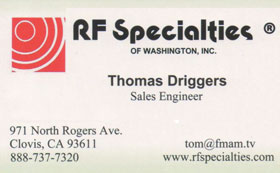By Mike Hendrickson, CPBE, CBNT
Are you familiar with the term RICE-NESHAP? You may have seen it in what you considered an annoying notice from a meaningless agency because you only have an “emergency” generator. If that was what you thought, you need to think again!
RICE-NESHAP is an acronym that translates to Reciprocating Internal Combustion Engine and National Emissions Standards for Hazardous Air Pollutants. In the context of the EPA rules it applies to any stationary internal combustion engine, whether an emergency generator, or a pump engine or other device powered by a stationary internal combustion engine.
The EPA first introduced these rules for engines in June 2004 and adopted the final rules in January 2013. If you have a stationary engine in use – emergency generator or not – you need to know these rules. Failure to comply can mean a fine for the engine owner.
First, understand that the EPA rules are the minimum requirements. There may be state, county, and local requirements that may be more stringent. Also, many of these agencies are much more aggressive with their enforcement than the federal EPA.
To know what federal, state, county, or local rules may apply, collect the following information: The date of manufacture or reconstruction (as defined by CFR title 40, part 63.2), the type of engine (spark ignition (SI) or compression ignition (SI), the size of the engine in brake horsepower, and any manufacturer certifications.
The rules contain regulations regarding record keeping. At a minimum you will need to keep track of the use of the engine and the maintenance it receives. The rules also specify limitations on the number of hours per year the engine may be run in non-emergency use or testing. Non-emergency use includes the use of the generator in load-shed programs.
I encourage every engineer with an emergency generator to become familiar with the rules. The specific rules are located at CFR title 40, part 63, subpart ZZZZ.
Online Resouces


